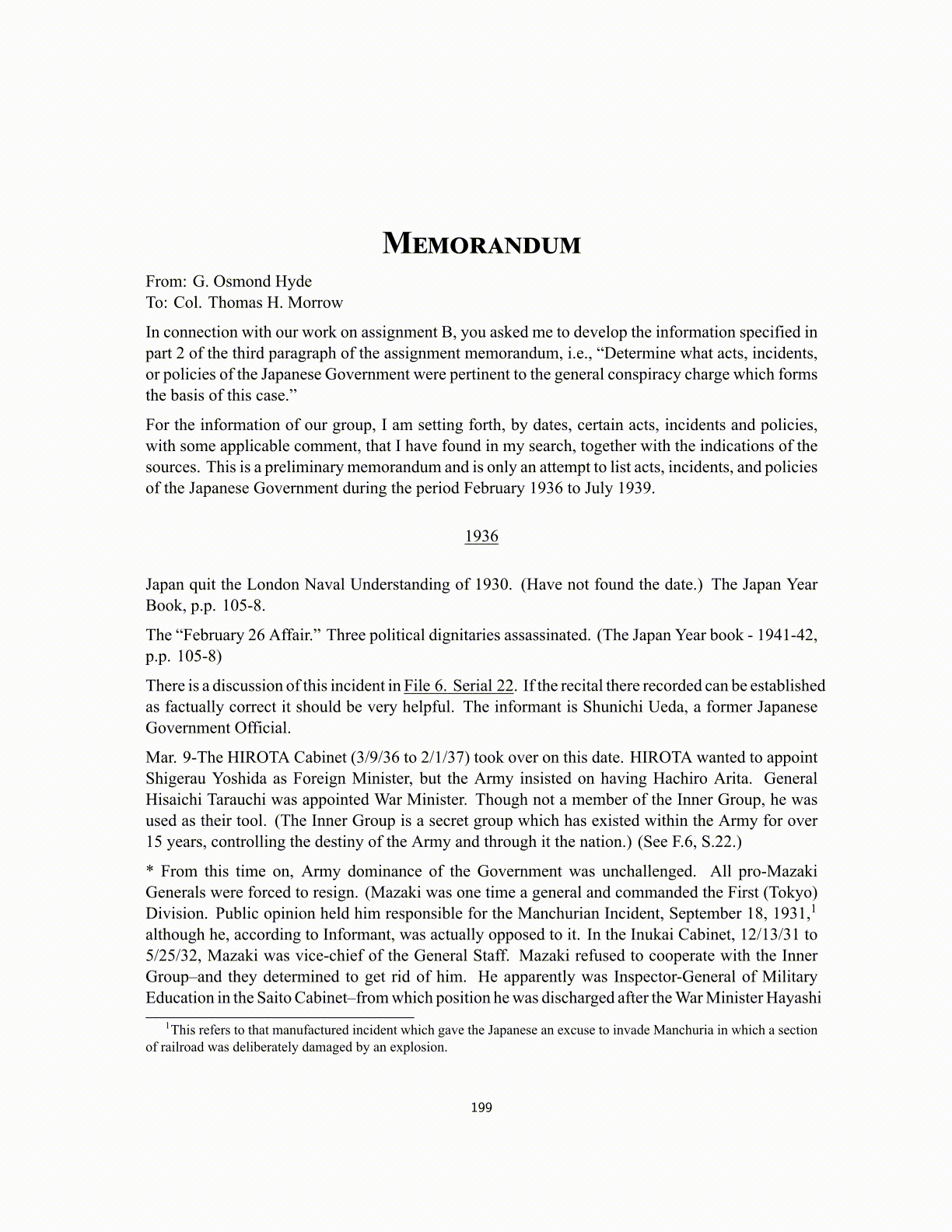
MEMORANDUM From: G. Osmond Hyde To: Col. Thomas H. Morrow In connection with our work on assignment B, you asked me to develop the information specified in part 2 of the third paragraph of the assignment memorandum, i.e., “Determine what acts, incidents, or policies of the Japanese Government were pertinent to the general conspiracy charge which forms the basis of this case.” For the information of our group, I am setting forth, by dates, certain acts, incidents and policies, with some applicable comment, that I have found in my search, together with the indications of the sources. This is a preliminary memorandum and is only an attempt to list acts, incidents, and policies of the Japanese Government during the period February 1936 to July 1939. 1936 Japan quit the London Naval Understanding of 1930. (Have not found the date.) The Japan Year Book, p.p. 105-8. The “February 26 Affair.” Three political dignitaries assassinated. (The Japan Year book - 1941-42, p.p. 105-8) There is a discussion of this incident in File 6. Serial 22 . If the recital there recorded can be established as factually correct it should be very helpful. The informant is Shunichi Ueda, a former Japanese Government Official. Mar. 9-The HIROTA Cabinet (3/9/36 to 2/1/37) took over on this date. HIROTA wanted to appoint Shigerau Yoshida as Foreign Minister, but the Army insisted on having Hachiro Arita. General Hisaichi Tarauchi was appointed War Minister. Though not a member of the Inner Group, he was used as their tool. (The Inner Group is a secret group which has existed within the Army for over 15 years, controlling the destiny of the Army and through it the nation.) (See F.6, S.22.) * From this time on, Army dominance of the Government was unchallenged. All pro-Mazaki Generals were forced to resign. (Mazaki was one time a general and commanded the First (Tokyo) Division. Public opinion held him responsible for the Manchurian Incident, September 18, 1931, 1 although he, according to Informant, was actually opposed to it. In the Inukai Cabinet, 12/13/31 to 5/25/32, Mazaki was vice-chief of the General Staff. Mazaki refused to cooperate with the Inner Group–and they determined to get rid of him. He apparently was Inspector-General of Military Education in the Saito Cabinet–from which position he was discharged after the War Minister Hayashi 1 This refers to that manufactured incident which gave the Japanese an excuse to invade Manchuria in which a section of railroad was deliberately damaged by an explosion. 199